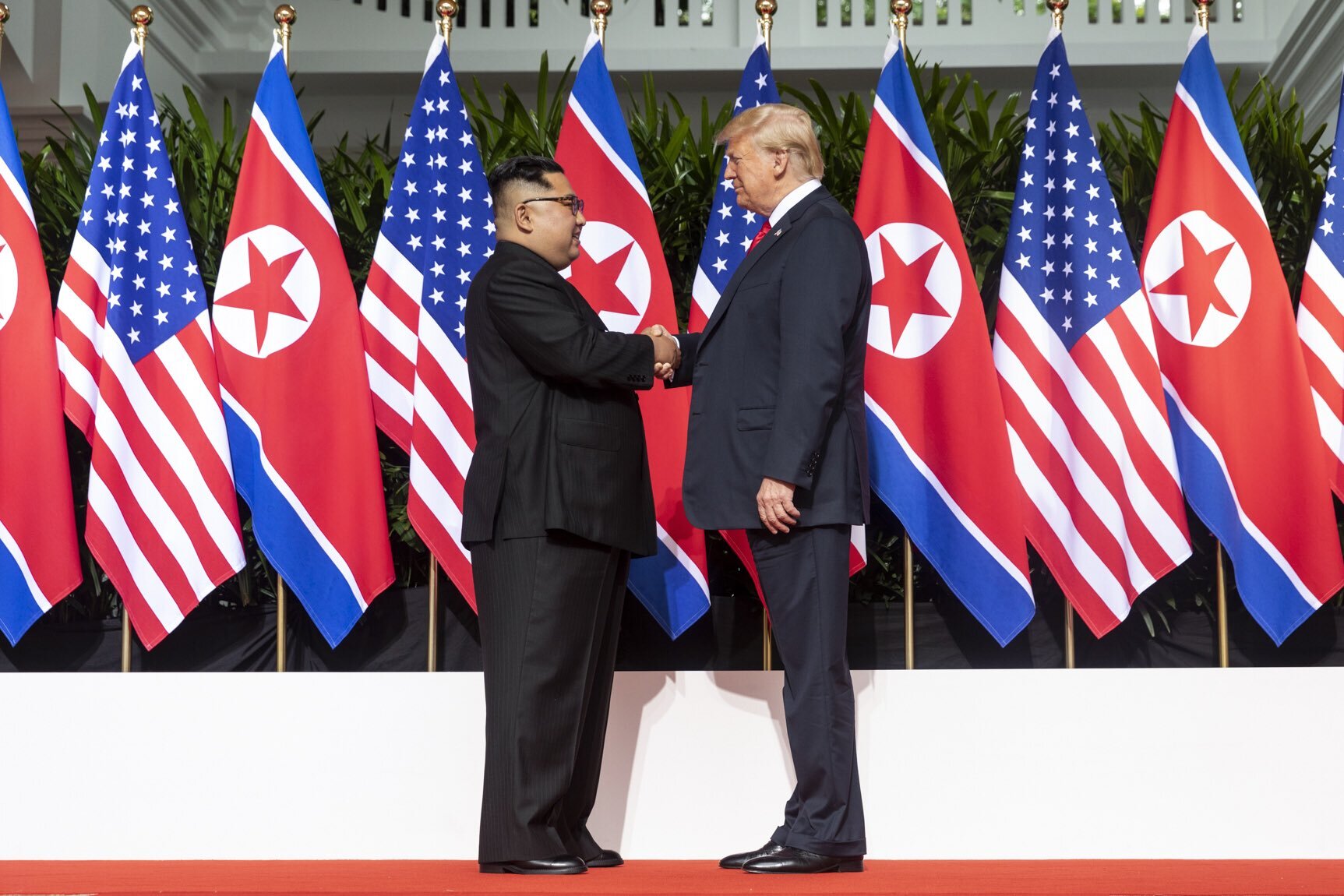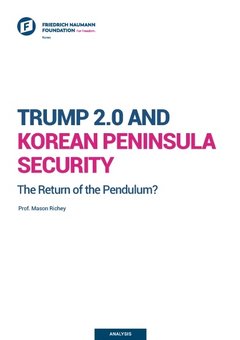Publication
What Trump Could Mean for Korea – and for the Balance of Power in East Asia

A new policy paper by the foundation analyzes the possible Korea policy of former President and current candidate Donald Trump. Author Mason Richey considers a rapprochement between Trump and Kim likely – and warns of a nuclear arms race in East Asia.
The summits between then U.S. President Donald Trump and North Korean leader Kim Jong Un in Singapore and Hanoi were among the most remarkable political events of recent years. The meetings had the potential to significantly change the political landscape in East Asia. However, the summits ended without agreement.
North Korea continues its nuclear program despite international sanctions. In mid-September, North Korean state television showed Kim Jong Un inspecting a large uranium enrichment facility. Tensions between South and North Korea are rising: almost weekly, North Korea tests missiles or sends balloons loaded with garbage toward the South. Prominent experts have already warned of the possibility of war on the peninsula.
Possible New Dynamics
Trump’s Korea policy during his presidency, as well as recent statements from his advisory circle, suggest that a second term could drastically change the current U.S. Korea policy – with far-reaching security implications for all of East Asia.
In his analysis for the Korea office of the Friedrich Naumann Foundation for Freedom (FNF), Mason Richey, professor of international relations at the Hankuk University of Foreign Studies, outlines various scenarios. For instance, he sees a high likelihood that Donald Trump will once again negotiate with North Korea and offer Kim Jong Un de facto recognition as a nuclear state. Furthermore, his presidency could raise doubts in South Korea about the U.S. nuclear deterrent. Both developments could lead to a nuclear arms race in East Asia.
Given the likely U.S. security focus toward East Asia, Richey recommends that the European Union strengthen its defense capabilities. Additionally, it should develop a strategy on how to respond to nuclear armament plans from partner countries like South Korea or Japan.
You can download the policy paper (in English) below.


